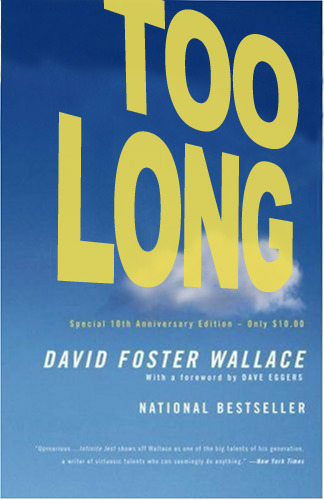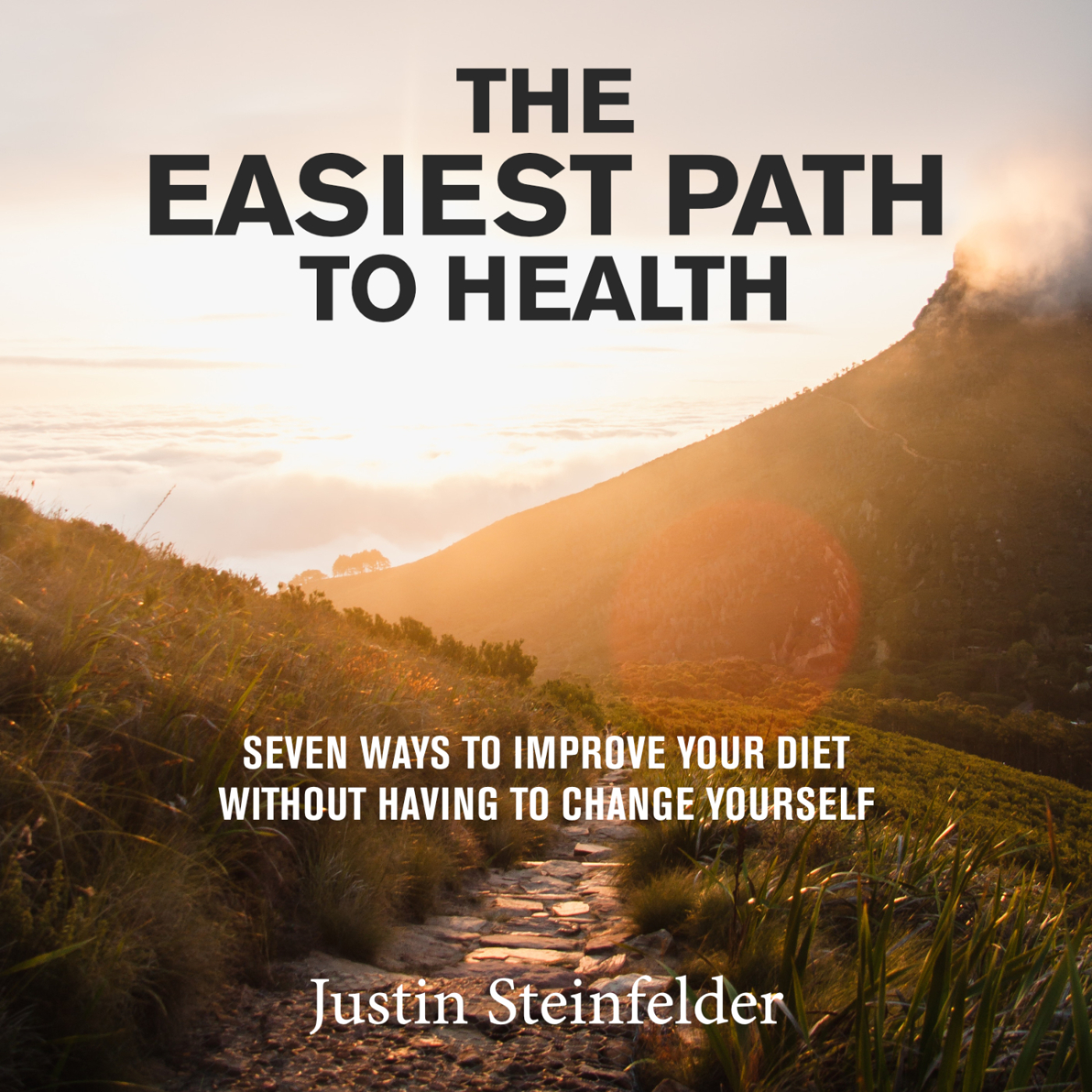Reading Time: 5ish minute intro + 10, 1-min recommendations.
Don’t you just love when someone recommends a 600-page book, or a five-season, TV series to you? Great, so all I need is about 25-50 hours to dedicate to this thing. Thanks, fella.
As Chapelle Show comedy writer Neil Brennan once said, “so, I realized I could either dedicate the time to watch Game of Thrones or … Or I could use that time to become a certified helicopter pilot!”
Hmm GOT geek or baddass chopper pilot? Tough call…
In other words, most of us are already trying to keep our head above water with the current shit-aki we want to read, watch, create, do, travel to, people we need to catch up with, etc. And, that’s not even taking into consideration the hours we need to spend recording it all for Insta TV.
So we’re probably not going to get around to your artsy reco of Infinite Jest.
Now, don’t get me wrong. As I’ve said before, I think we need more, not less, book-lists. (Here are my 32 best reads / re-reads from last year). But, it’s also important to be highly selective. As many have said, time is our greatest asset – and it’s finite. I think this same logic applies to podcasts.
Let’s say someone recommends a popular podcast to you. Dude (-ette) you MUST listen to Tim Ferriss’ podcast. Or: You just gotta listen to Joe Rogan’s podcast.
K, bra, that’s like 1500 episodes. Not to mention the fact that each one is upwards of two to four hours long.
Enter: The Curator…
We Depend on Curators
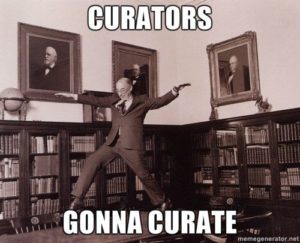
The curator at the MoMa or the the Prado doesn’t give you all of Picasso’s paintings. They show you a select few that are life-changing or perspective-shifting to them. Picasso apparently made over 50,000 paintings, drawings, photos, and sculptures, but the Museo Picasso Malaga museum (Picasso was born in Malaga, Spain), for example, holds only 285 of Picasso’s most famous works.
Show me some of the 1% of Picassos that changed art forever. The ones that might change me forever. Then I’ll decide to continue to move on.
Same with podcasts or books or TV shows — give me the episode or idea or chapter that changed your life or made you laugh or think.
Ok, you get it, greatest hits to start, no deep cuts.
But, I still don’t feel totally comfortable giving you my time unless you can solve the one, major remaining problem..
The Problem With Yelp Recommendations and Podcast Reviews
I cannot believe Yelp and Google Reviews are the best ways to look find restaurants in a given city. There are at least two problems with getting recommendations from these sources— the first is obvious, the second may be less so.
Problem #1: extremes
The obvious issue is that most people writing on Yelp come from extremes. Someone writing a good review is likely to be either unusually thrilled with their experience, a person bias to this type of food, or knows the owner.
Contrast that with someone writing a bad review. They may have brought in their typically critical, snobbish perspective or perhaps they are a bit heated after some frazzled server spilled mulligatawny on their smoking jacket.
Now, there is certainly something to be said about “wisdom of the crowd.” And so, in some circumstances, especially when there are more 3-star reviews, maybe that works out. But we have a bigger problem on our hands…
Problem #2: anonymity, aka WE DON’T KNOW WHO THE F YOU ARE!
When I go to friends for recommendations, unlike reading a Yelp! or podcast rating, I know what kind of person they tend to be, what they have recommended to me before, and how those recommendations faired.
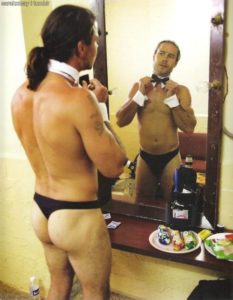 Are you some party-freak that visits Barcelona and goes to da’ clubs ‘till 7am? Or are you a snobby, bookish lass who goes to sleep early in order to pack a full day of exploration, art, and history into the mix? Because I’ll take the day-plan from the book snob, but take ‘da club rec from party boy, (Well, not really. Clubs are dumb).
Are you some party-freak that visits Barcelona and goes to da’ clubs ‘till 7am? Or are you a snobby, bookish lass who goes to sleep early in order to pack a full day of exploration, art, and history into the mix? Because I’ll take the day-plan from the book snob, but take ‘da club rec from party boy, (Well, not really. Clubs are dumb).
Criteria would also be a plus. Party-boy—- what makes a good club? Because a great club to Hitch might be different from whatever demonic slut-fest that pig Vance Munson recommends. 
This applies directly to podcast episode recommendations. Let’s tie it all together, and then get you those rex.
Putting It All Together (And Then The List)
To sum up, if you are going to recommend a pod to me, please supply the following:
- one great, representative episode, not the full podcast (and if the podcast is four hours long, please direct me to key part);
- A description of the recommender, including other podcasts, books or movies you tend to like (unnecessary if I know you well); and
- the criteria by which you determine if an episode is good.
Lots of work? Perhaps. But I am trusting you with my time. If it feels like too much of a burden, then you’re probably not a curator. Sorry, random dude from my office..
So, let me supply you with those quickly and then get to my list of great, perspective-shifting, and representative podcast episodes.
- Who Am I? You can read this or read the many recommendations I’ve posted in the past. The short version is that I have dilettante-like range of interests, I am way closer to the snobbish history, art, wandering, eating traveler, than party-boy. I mix my cereals, think every desert should come with a scoop of vanilla, and don’t understand people who use dry paper instead of baby wipes. The range of podcasts / books I listen to / read span behavior, psychology, economics, business, art, design, spirituality, philosophy, and, of course, Wuthering Heights. Damn that Heathcliff. He’s so diabolical yet still so flippin’ likable!!!
The Criteria:
- Impact on Thinking. Was it perspective changing or influencing?
- Re-pod-able. Even if I take pod notes, there are some episodes so good, I just need to let them hit me again. Was it good enough to listen to more than once— was it re-pod-able?
- Body, Mind, Spirit. Uh oh, I’ve lost you. This may sound like the psycho-babble that Sack was yelling about, but I rarely listen to podcasts for pure entertainment. For that, I’ll watch stand-up or play hacks-sack. It’s more to hit one of these three facets.
Below is the list of 10 GREAT pod eps. I will describe briefly, the subject matter, and why specifically it changed my perspective. You will notice that I might recommend two episodes under a couple podcasts. Some podcasts I value you more than others because the host is just so good. Also, some have a wide range of guests.
These are listed in no particular order.
Pick one from the list, give it 20 minutes. Not good, maybe pick another, maybe tell me to go to hell…
10 Great Podcast Episodes
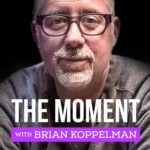 #1. The Moment with Brian Koppelman, Ep. Best of Seth Godin (3/21/17, 64 min).
#1. The Moment with Brian Koppelman, Ep. Best of Seth Godin (3/21/17, 64 min).
Koppelman is a writer/director/producer. He wrote Rounders, one of my favorite movies of all time, and is currently the “show runner” for Billions. He is one of the best interviewers I’ve ever heard regarding his ability to nail down a point and get an authentic answer from the guest. You often hear guests say: “I’ve never been asked that” or “I’ve never said this out loud.” Koppelman interviews artists and creators— writers, directors, actors, authors, musicians, producers. It is about identifying the “moment” that was a turning point in the career.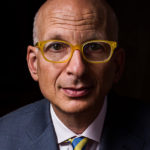
Episode descriptch: Godin has been on Koppelman’s podcast four or five times, but this one is a review of the best “moments” of the first three. They talk about books, art, writing, philosophy, marketing. If you’ve read other posts, you’ll know, I’m a HUGE Godin fan. He makes me think.
(For more on Godin’s phenomenal online workshop, click here).
Others: John Grisham (11/1/16), Ryan Holiday (5/3/16), Salmon Rushdie (9/29/15), Gary Gulman (3/18/14).
 #2. On Being, Krista Tippett, Ep. Maria Popova (1/4/17, 51 min).
#2. On Being, Krista Tippett, Ep. Maria Popova (1/4/17, 51 min).
Krista Tippett is a journalist who started on being in the 90s on the radio I believe. She has a wide range of experience – including having lived in Germany at the fall of the Berlin wall. This podcast is about spirituality, learning, writing, creating, authenticity, wisdom. She interviews people across the board: physicists to priests to human rights activists to writers. (Also, check out here book, Becoming Wise which was one of my favorites from last year).
Ep Descriptch: This is a two-fer cause it’s two of the more contemplative thinkers I’ve ever heard on one ep. You have the fantastic Tippett, who seems to never waste a question on something not of huge importance. And then you have the amazing Maria Popova, the lovely person behind brainpickings.org (my favorite blog), who rarely wastes a sentence.
heard on one ep. You have the fantastic Tippett, who seems to never waste a question on something not of huge importance. And then you have the amazing Maria Popova, the lovely person behind brainpickings.org (my favorite blog), who rarely wastes a sentence.
Others: Brian Greene (5/31/17), Dan Kahnenman (10/5/17), Alain De Botton (9/29/16), Adam Grant (10/22/15)
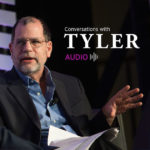 #3. Conversations with Tyler (Economist, Tyler Cowen), Ep 01 Peter Thiel (81 min).
#3. Conversations with Tyler (Economist, Tyler Cowen), Ep 01 Peter Thiel (81 min).
Tyler Cowen is an economist at George Mason University near DC, but more importantly, is one of the more interesting thinkers and interviewers I’ve ever heard. He also seems to have read everything. I particularly like the segment he does called “overrated / underrated.”
Ep Descriptch: OK, first, a warning: the sound quality is not good. But, if you can make it  through that, Peter Thiel, co-founder of PayPal, early investor in Facebook, Stanford professor, among a ton of other things, is just a fascinating guy with staunch opinions. Whether or not you agree with him is not the point— the point is to think. These two together is too many ideas to even fathom just on one listen.
through that, Peter Thiel, co-founder of PayPal, early investor in Facebook, Stanford professor, among a ton of other things, is just a fascinating guy with staunch opinions. Whether or not you agree with him is not the point— the point is to think. These two together is too many ideas to even fathom just on one listen.
Other: Atul Gawande, Charles Mann, Gladwell, Agnes Callard, Ezra Klein, Dave Barry
 #4. Found My Fitness (Dr. Rhonda Patrick), Ep Dr. Valter Longo: Fasting (7/9/18, 77 min).
#4. Found My Fitness (Dr. Rhonda Patrick), Ep Dr. Valter Longo: Fasting (7/9/18, 77 min).
I can count on one hand the amount of trustworthy and objective voices in nutrition, and Rhonda might be at the top of that list. She has no ulterior motives other than optimal health and life extension. She doesn’t cross-promote or try to stuff a bunch of products down your throat. And, oh yea, unlike most other podcasters and writers about health— she’s actually a Researcher, which is probably why she’s the go-to resource for non-researcher (in the technical sense) Silicon Valley and podcast nutrition gurus like Tim Ferriss and Joe Rogan. She has a PhD biomedical science and has done extensive research on aging, cancer and nutrition. She wrote a great little book on the crucial roles of vitamin D and omega 3, has published several academic papers, and has spoken all over the world. She also happens to be a wonderful person. This podcast is extremely detailed and research-based.
Episode Descriptch: Dr. Longo is the director of the longevity institute at USC and director of the Oncology and Longevity Program at the Institute of Molecular Oncology Foundation in Milan, Italy. In this episode (there are actually two), he discusses what extended fasts (4-5 days) or his fasting-mimicking diet, can do for your body and brain on a cellular level. Basically, it can kill off bad cells and restore great ones. It’s nuts.
Other eps: Sauna Use and Building Resilience to Stress, How Cryotherapy Affects the Brain, Satchin Panda (on time-restricted feeding). If you want more, just go here and watch the many great videos on supplements, sugar, saturated fat, the optimal smoothie, as well as more technical stuff.
 #5. Work Life (Professor Adam Grant), Ep: “How To Love Criticism” (2/28/18, 35 min).
#5. Work Life (Professor Adam Grant), Ep: “How To Love Criticism” (2/28/18, 35 min).
My fandom for Adam Grant is no secret. I’ve written extensively on his books (here, here and here). This podcast does not disappoint, especially if you enjoy professionally produced pods. He takes you inside some of the most successful and unique businesses to try and tease out what they are doing so well. This first one explores Bridgewater Associates, the $150 billion hedge-fund.
Ep Descriptch. This episode goes into the wild process of negative feedback that has been embraced and mastered by Ray Dalio and Bridgewater. If you’re a reader of ze’ Dilettante, you’ll know that I also have a thing for Dalio, and I’m fascinated by this process. The goal is not to save your feelings, only truth.
Other eps: Bonus: A Debate With Malcolm Gladwell, The Problem With All-Stars
 #6. Waking Up with Sam Harris, Ep #91: The Biology of Good and Evil (98 min).
#6. Waking Up with Sam Harris, Ep #91: The Biology of Good and Evil (98 min).
Another probably less than surprising pick for readers of the blog. Sam Harris is another one of those guys where, whether or not you agree with him, he puts things in such a way that you must think, one way or the other. I also love his particularly fun way with language — he can verbally dismantle anyone. His books are also great, particularly, Waking Up (which led to my introduction to meditation) and The Moral Landscape.
Ep Descriptch: Sam’s podcast is meant to have difficult but important conversations. In this one he talks with  neuroendocrinologist (brain and hormones expert) and Stanford professor Robert Sapolsky who is a combination of ZZ Top, Professor X and the caddy from Happy Gilmore. He has also lived with Baboons for like 30 summers in a row. His new book, Behave: The Biology of of Humans at Our Best and Worst, should probably be required reading in high school or college.
neuroendocrinologist (brain and hormones expert) and Stanford professor Robert Sapolsky who is a combination of ZZ Top, Professor X and the caddy from Happy Gilmore. He has also lived with Baboons for like 30 summers in a row. His new book, Behave: The Biology of of Humans at Our Best and Worst, should probably be required reading in high school or college.
(For an even shorter preview to Sapolsky – watch this 15-minute TED talk. Just great).
Other Eps; #68 Reality and Imagination (Yuval Harari), #41 Faith in Reason (Eric Weinstein), #127 Freedom From The Known (Michael Pollan)
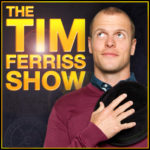 #7. The Tim Ferriss Show, Ep #168 Dissecting the Success of Malcolm Gladwell (97 min).
#7. The Tim Ferriss Show, Ep #168 Dissecting the Success of Malcolm Gladwell (97 min).
Many or most of you have likely heard about Ferriss or are already listening to this podcast. For those that are not, or do not know who Tim Ferriss is, that’s probably a mistake. He is another guy who will make you think, whether or not you agree with him. He impacted the way I think on subjects like: Efficiency v. Effectiveness, Travel, Reading, Jobs, nutrition / the body, what’s important, fear, etc. He’s also what some call a “super-connector” in that he  seems to bridge the gap between disparate fields and people, resulting in a great guest lineup.
seems to bridge the gap between disparate fields and people, resulting in a great guest lineup.
Ep Descriptch. Gladwell is the number one “make you think” thinker, in my humble opinion (including leading to my Outliers insight). This episode was the first time I heard him speak on a lot of topics such as public speaking, his writing process, and other thinking ideas. (Check back in a month or so– I’m just looking into Gladwell’s podcast and Masterclass).
Other Eps: #148 Josh Waitzkin (world champion martial artist and chess master), #138 Seth Godin, #135 Luis Von Ahn (DUOLingo CEO), #178 Tony Robbins
 #8. The James Altucher show, Ep# 184 Robert Cialdini: The 7 Techniques to Influence Anyone (70 min).
#8. The James Altucher show, Ep# 184 Robert Cialdini: The 7 Techniques to Influence Anyone (70 min).
Ok, frankly, Altucher is an odd, odd man. He’s like mad-scientist meets business-techy entrepreneur meets Welcome Back Kotter meets dweebazoid with a chronic stuffed nose. Having said all of that, he may also be a genius and is one of the better interviewers out there. His guests are diverse and interesting.
Ep Descripch: Robert Cialdini is a professor of psychology at ASU and an extremely interesting guy. He wrote the book Influence, a prized-possession of CEOs and marketers, not for the reason of persuading others (as many think), but actually to avoid being hoodwinked by would-be swindlers.
Other Eps: #185 Cal Newport, #217 Tony Robbins, #197 Steven Pressfield, #108 Ryan Holiday
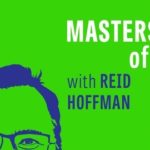 #9. Masters of Scale with Reid Hoffman (LinkedIn CEO), ep How To Build Your Company To Last (2/6/18, 51 min).
#9. Masters of Scale with Reid Hoffman (LinkedIn CEO), ep How To Build Your Company To Last (2/6/18, 51 min).
LinkedIn CEO interviews other CEOs of the most successful companies on a different skill of building a business. This is like NPR’s How I Built This except instead of being interviewed by a reporter, people are interviewed by someone who’s done it.
Ep Descriptch: Most are focused on Unicorns (billion-dollar businesses in small time-frames like Instagram or Twitter) but Hoffman wants to focus on “Phoenixes” (companies that have lasted over 100 years). Love this change in perspective and the interviews are compelling, starting the CEO of Fiat.
Other eps: Beauty of a Bad Idea (5/17/17), Airbnb’s Brian Chesky (5/3/17).
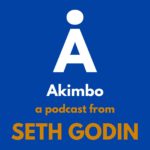 #10. Seth Godin’s, Akimbo, ep Don’t Fear Placebos (3/21/18, 26min).
#10. Seth Godin’s, Akimbo, ep Don’t Fear Placebos (3/21/18, 26min).
Again, no secret about my love for Godin (here’s my experience of Godin’s online workshop, the AltMBA). He challenges people like Gladwell and Peter Thiel for highest make-you-think-about-shit-ness.
Ep Descriptch: Things work when we believe they are going to work, regardless of whether or not the thing itself (as opposed to your mind) is independently effective. For example, the science on acupuncture is apparently still iffy, but if you believe it, it may work anyway. Godin tells us why this isn’t a bad thing and how to leverage it.
Others: Game Theory (3/28/18), Quality (4/3/18).
OK, that’s it Lady Bugs.
Please let me know what you thought about anything on this list and send me your lists (properly curated and qualified, of course..).
Besos,
Justy
